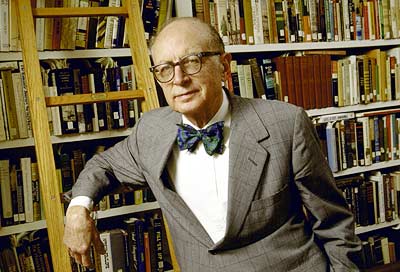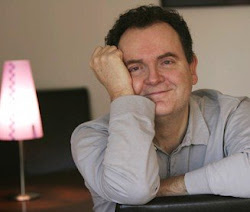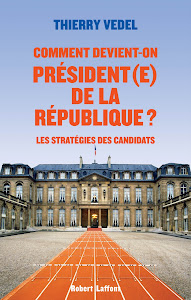En ce moment c'est la période des universités d'été des partis politiques (qui, en France, sont apparues il y a une vingtaine d'années).
Mais à quoi servent ces universités d'été?
Daniel Boorstin (1914-2004)
En 1961, un historien et conservateur à la Librairie du Congrès, Daniel Boorstin, publie un ouvrage intitulé: The Image: A guide to Pseudo-Events in America.
Boorstin définit les pseudos-événements, comme des événements planifiés et organisés dans le but principal d'être couverts par les médias. La substance du pseudo-événement importe moins que sa valeur médiatique (la"newsworthiness" dont j'ai déjà parlé dans ce blog). Un pseudo-événement fonctionne souvent comme une prophétie auto-réalisatrice (self-fulfilling prophecy): le fait de l'annoncer suffit à le faire exister.
Selon Boorstin, si les pseudo-événements attirent tant les journalistes, c'est qu'ils sont en général:
- écrits comme une pièce dramatique,
- avec des rôles répartis entre des personnages intéressants,
- générateurs d'images symboliques,
- et conçus pour rassurer ("Even if we cannot discuss intelligently the qualifications of the candidates or the complicated issues, we can at least judge the effectiveness of a television performance. How comforting to have some political matter we can grasp" ecrit Boorstin).
Addendum du 12/09: Selon Le Canard enchaîné du 7 septembre 2005, l'université d'été de l'UMP aurait coûté 1,6 million d'euros, celle du PS 250 000 euros et celle de l'UDF 200 000 euros.
Lire le premier chapitre de The Image: A guide to Pseudo-Events in America
In France, many political parties are currently having what they call their summer school.
These can been seen as pseudo-events as defined by Daniel Boorstin in his 1961 book. Peuso-events are events which
- are not spontaneous, but come about because someone has planned or incited them,
- are planted primarily (not always exclusively) for the immediate purpose of being reported or reproduced. Therefore, their occurrence is arranged for the convenience of the reporting or reproducing media.
Pseudo-events success is measured by how widely they are reported. The question, "Are they real?" is less important than, "Are they newsworthy?"
According to Boorstin, if pseudo-events are attractive, it is because they are scripted and dramatic, include a cast of interesting characters, produce iconic images and are designed to be re-assuring: "Even if we cannot discuss intelligently the qualifications of the candidates or the complicated issues, we can at least judge the effectiveness of a television performance. How comforting to have some political matter we can grasp!"
mardi 30 août 2005
Universités d'été et pseudo-événements
Inscription à :
Publier les commentaires (Atom)
%40claire+Garate+-+Copie.jpg)





Aucun commentaire:
Enregistrer un commentaire